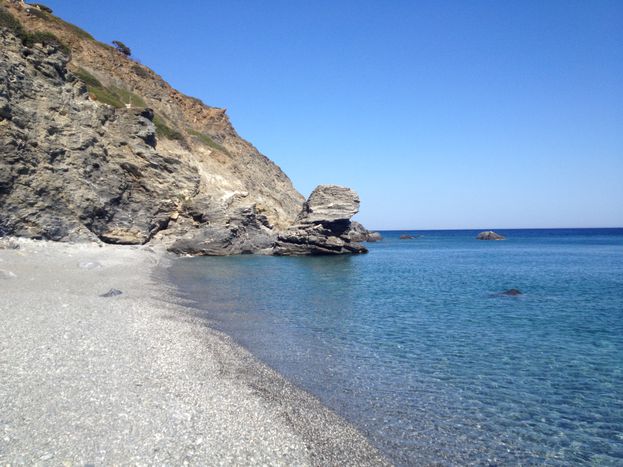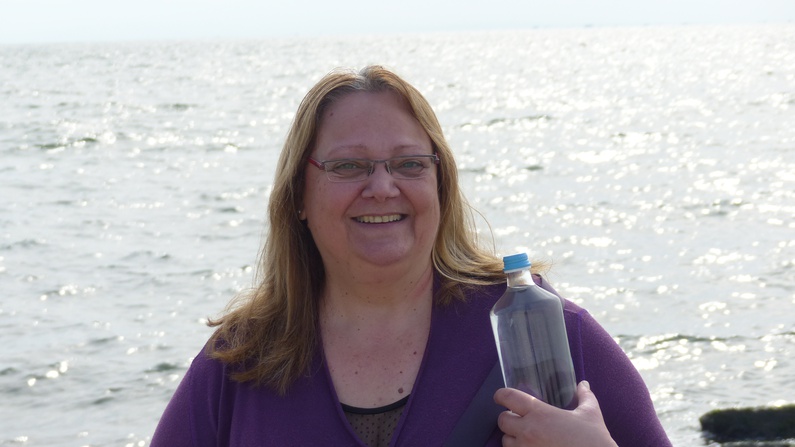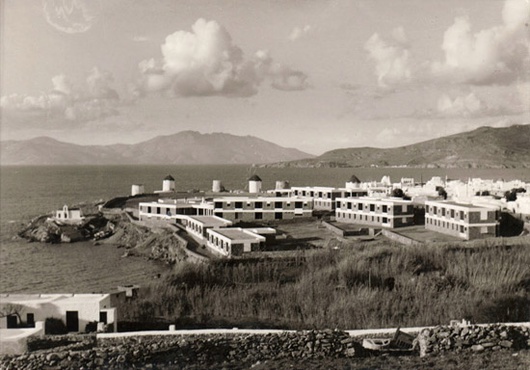
La plage, c'est moi - how Greece is selling civil rights
Published on
The coastline of Greece extends over more than 10,000 kilometers and is considered the most important resource of the country. Therefore, the Greek Constitution obliges to preserve the environment, and public access to the sea is protected by the law. This fundamental right is now for sale .
The coastline of Greece is not merely a resource, but a fundamental part of Greek culture. Public access to the beach is protected by the law, but now this might change. The minister of finance has proposed a legislation that allows private investors to acquire coastal and beach premises. But there is resistance. I meet Vivianna Metallinou in a restaurant on the beach promenade of Thessaloniki. After a warm welcome she orders fried calamari and Ouzo. Vivianna is a busy woman. I had contacted her due to her online petition on change.org against the new legislation. As we talk, I learn that she is and architect, a graduate of the prestigious Massachusetts Institute of Technology (MIT) and also running for City Council, which will be elected on 18 May .
 The beach is a fundamental right
The beach is a fundamental right
When we come to speak about the petition, her first comment is: "This is a provocative act." The decision to sell the beaches was made behind closed doors and primarily by economic consultants - not by elected representatives of the people, she explains. Since the beginning of the crisis it is not the first time that fundamental rights of the Greek people are being limited. The rather half-hearted handling of the Constitution became especially obvious in health care issues: Only one third of the Greeks is health insured and has access to medical care.
The crisis still has control over the country. By selling state assets, the government in Athens hopes for the long-awaited economic recovery; a strategy the Troika made a condition for the loans of the past. In its last report it was pointed out that the process of privatization lacked satisfactory results. In charge of the respective transactions is TAIPED, a company based in Athens. Its sole shareholder is the state of Greece. Everything is for sale: Airports, harbors, marinas, gas or water companies as well as land. Unfortunately, the company shines neither with success, nor with transparency. Now, the EOT, the National Tourist Oranization, which reports directly to the Ministry of Culture and Tourism, has given TAIPED green light to sell beach premises to private investors.
Tourism does not need private beaches
"Some premises, okay, but everything and without regulations," Vivianna criticizes the radical course of action, taken by the government. Anyone with enough money can come and buy a piece of beach, make whatever changes desired, even if that means to cement parts of the coastline. This way, Greece is not only running the risk of destroying coastal areas, as it happened in parts of Spain. More importantly, the politicians in Athens sell Greece's most valuable resource. And, last but not least, the country, largely depending on tourism, learned as early as the 50s and 60s that business with vacation perfectly works without private beaches.
 In the period between 1957-1967, the Greek architect Aris Konstantinidis was head of the Xenia program, an initiative of the National Tourism Organization for structural development of the tourism sector. Konstantinidis’s main characteristic was his sustainable approach. Typical for his style is a modern form language, which he understood as a continuation of the Greek tradition. His buildings not only melt together with the landscape in color and dimension, but also take into consideration climatic conditions, e.g. by providing shadow zones and by using traditional materials. The majority of his buildings became cultural heritage, has shaped tourism in Greece for decades and never blocked public access to the beach .
In the period between 1957-1967, the Greek architect Aris Konstantinidis was head of the Xenia program, an initiative of the National Tourism Organization for structural development of the tourism sector. Konstantinidis’s main characteristic was his sustainable approach. Typical for his style is a modern form language, which he understood as a continuation of the Greek tradition. His buildings not only melt together with the landscape in color and dimension, but also take into consideration climatic conditions, e.g. by providing shadow zones and by using traditional materials. The majority of his buildings became cultural heritage, has shaped tourism in Greece for decades and never blocked public access to the beach .
Standing up for your rights
Now the law 2971/2001 that guarantees free access to the beach is drastically altered and the restrictions imposed by Article 24 of the Constitution, preserving the environment, are disabled. "Greece is a nautical country. The sea is our way of life" , says Vivianna and underlines the urgency of the legislation for the population. The broad resistance among the Greeks against the new legislation proves her right. In addition to her petition on change.org that has motivated more than 25,000 people to sign in only few days, there is another one on avaaz.org as well as various initiatives in the social media. Especially on the Internet, a steadily increasing number of people objects to the lack of respect the government shows for democratic and ethical principles. But this is not only about ethics. "The conflict is real, it's politics and it's about standing up for your rights."
This article was originally published on 10 May, 2014 on www.eudyssee.net



